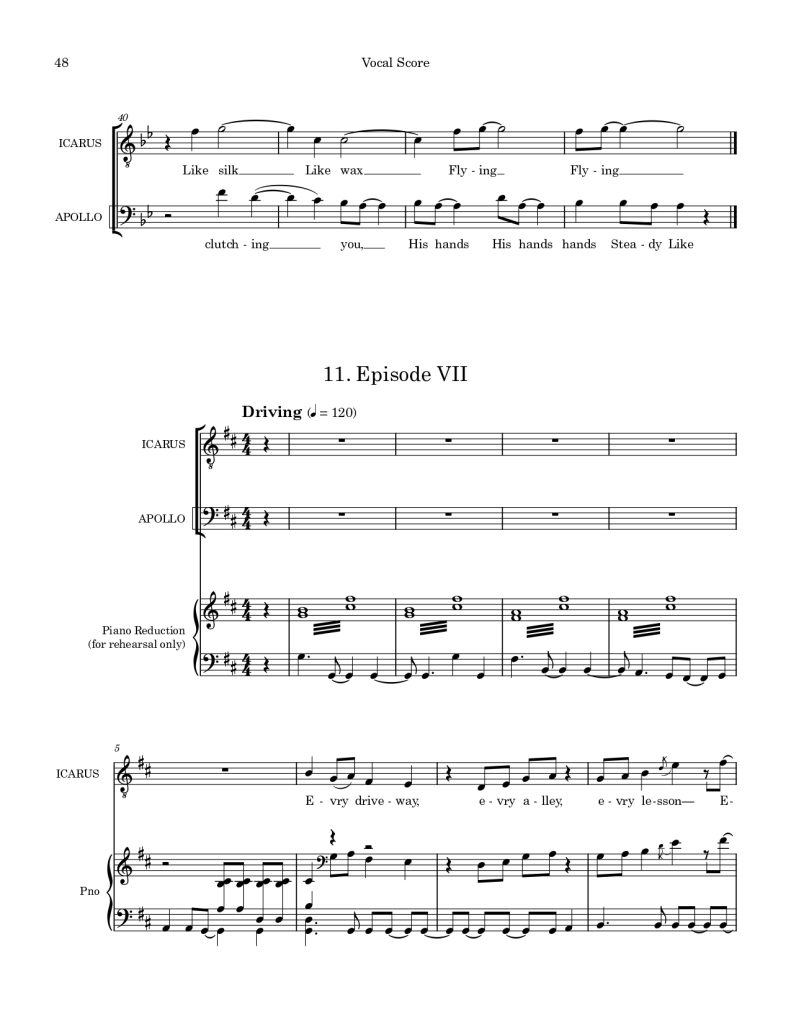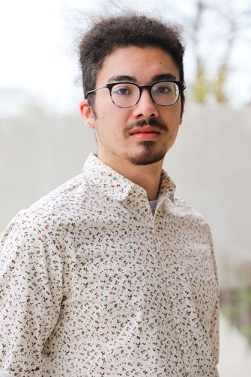Published on July 18, 2022
Ancient Greece is meeting Missouri in a new chamber opera by Honors music student Morima Yerby. As a part of the Honors Learning By Contract program, Yerby has undertaken adapting and subverting the story of Icarus in a pop-opera.

The opera combines pop music elements with classical opera elements. Alongside the string quartet and two singers, one playing Apollo and the other, Icarus, percussion will be performed on a drum set.
“I like to combine antiquity with modernity,” Yerby says. “I wanted that groove, that drum set beat, but at the same time I wanted the classical influence of a string quartet.”
“Putting [the opera] in this contemporary style of pop but calling it an opera creates that cognitive dissonance,” Yerby says.
The opera portrays the story of Icarus, son of Daedalus the mythical inventor. Daedalus and his son were trapped on the island of Crete. By making wings of wax and feathers, they attempt to escape the island. Daedalus advises his son not to fly too close to the sun, lest the wax melts. Icarus ignores his father’s advice and flies too high, melting his wings, and falls into the sea. The myth serves as a warning toward the dangers of hubris.
However, Yerby takes a different approach to the message of the story.
“I wanted to have a different reason why Icarus flies up to the sun,” Yerby says. “This is a modern retelling of Icarus where Icarus falls in love with Apollo. He’s 15, going on 16.”
“On Icarus’ 16th birthday, he gets a car. Since he’s fallen in love with the radio host, Apollo, he also downloads an app similar to Grindr. He matches with Apollo, and on his way to meet Apollo, he crashes his car, and dies,” Yerby says. “At the end, Apollo looks at the body of Icarus and says, ‘Oh well, to the next one.’”

Yerby incorporates a lot of queer elements into his opera.
“Any composition I make is going to be inherently queer,” Yerby says. “I don’t need to write a heteronormative story.“
There are many stories in Greek mythology that include the kinds of themes that Yerby seeks to incorporate, like the stories of Hyacinthus or Narcissus. A common theme of modern Icarus retellings involve Icarus falling in love with Apollo, and that caught Yerby’s eye. However, through research, Yerby realized that in most versions of the myth, Icarus was a young child. This brought up interesting parallels with real issues faced by young people in the queer community.
“There is a lot of closeted young men who will go onto apps like Grindr, and obviously that’s not the best place to have your first gay experience because of people like Apollo,“ Yerby says. “[The opera is supposed] to say, if we don’t have safe spaces for queer people, they end up going to dangerous places.”
“The issue is not with queer people being sexual, it’s with heterosexism creating spaces that are unsafe, and young folk turning to these apps,” Yerby says.
Yerby hopes to have performances of the opera late in the fall of 2022. Performance schedules will depend on the theatre department.